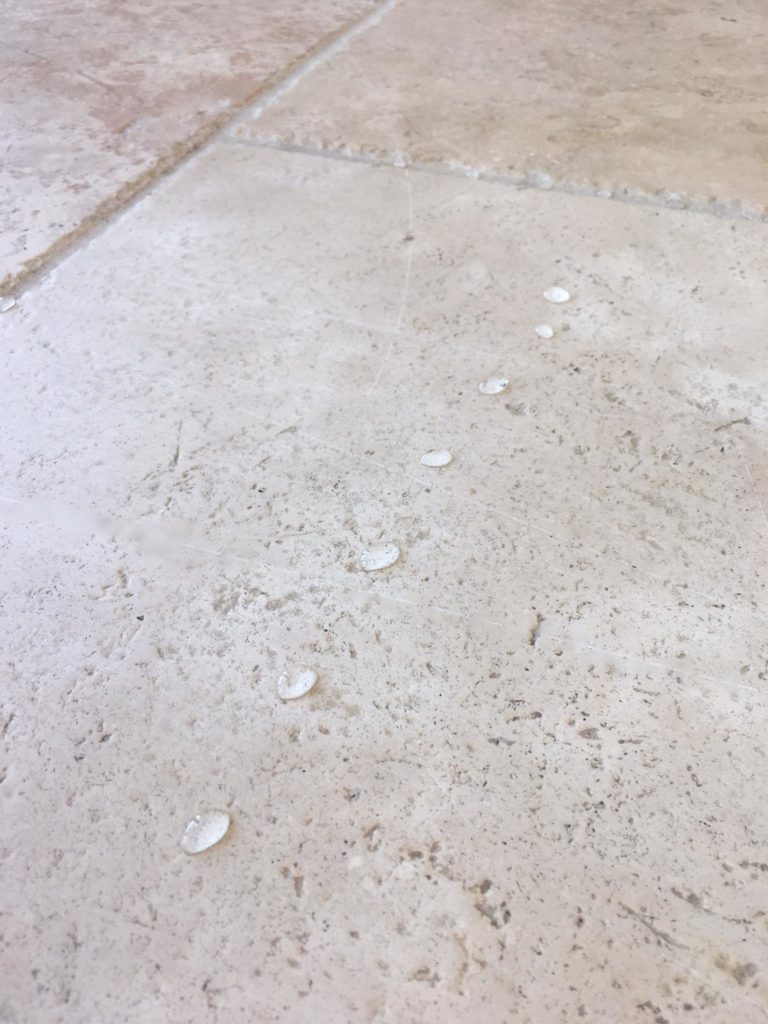Sealing natural stone tiled floors
Sealing a natural stone floor whether it’s sandstone, limestone, marble, travertine or slate to name a few, is important for helping protect the stone from stains, dirt and water soaking into the stone which could cause damage, as well as making the floors far easier to keep clean.
What type of sealers are there?
The main types of sealers are typical Impregnating sealers and Topical sealers.
- Impregnating sealers like the name suggests, impregnate into the stone and protect from within leaving a matte finish, with either a colour enhancing effect or natural effect.
They also allow the stone to breathe, meaning air and moisture from underneath can escape through the tile/stone, while no moisture will soak in from the surface. Shown in the video
Why is it important for the stone to be able to breathe?
If there is moisture below the stone/tiles that cannot escape, it will eventually break down the adhesive causing it to fail, damage the tile and the moisture will try and find another route such as your walls causing damp!
- Topical sealers.
A topical sealer sits on the surface or the stone creating a barrier from both directions. Nothing can penetrate into the tile nor will the tile be able to breathe.
The problems of this are noted in the impregnating sealer section.
Topical sealers normally have a shine finish and can be pretty hard wearing, however can be damaged by steam cleaners, or moisture trapped below causing the topical seal to become white and cloudy. Over time a topical can also become yellow and brittle shown in the video
In summary, impregnating sealers are the way to go for all natural stone floors.
Ps. Both an impregnating sealer and topical sealer will be damaged and lose it effectiveness by a steam mop so leave that steam mop in the cupboard!
For More Information on how we can help renovate your floor:
https://hemmingsltd.co.uk/natural-stone-tiled-floors/

